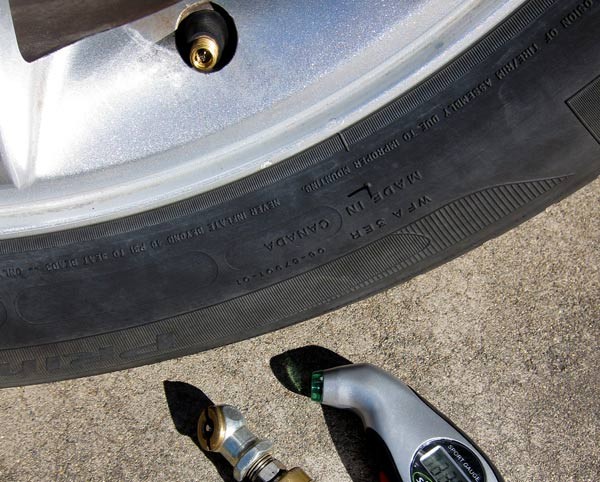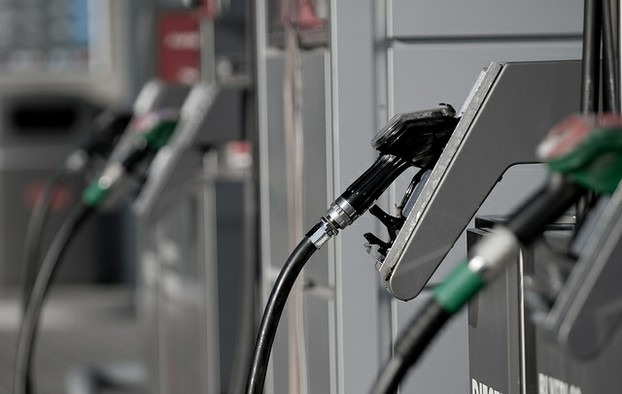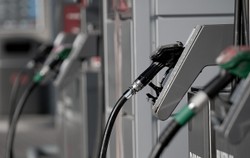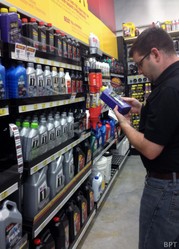With fuel prices soaring, it’s no wonder that drivers are looking for ways to save some money where they can with fuel saving tips. There are many quick-fixes that people will convince you are an effective way of saving a few Rands, but in reality these tips are often more likely to get your car – or yourself – damaged.

Dispelling Fuel-saving Misconceptions
by edstorm
Fuel-savings tips that can damage your car and threaten your safety rather than reducing cost
Topping off the Tank
Many people believe that even after the petrol pump has clicked to indicate that your tank is full, that pumping that extra little bit will help you squeeze some more fuel out of your hard earned money. In reality, you are more likely to lose value as the nozzle is designed to automatically shut off once the tank clicks full. Any additionally pumped gas is then sent to a ‘vapor recovery system’, in other words, back into the station’s fuel storage tanks. An additional risk of ‘topping off’ is that it may damage your car’s evaporative emissions system.
Over-inflated Tires
The logic behind this method of fuel saving is that the more pumped up your tires are, the smaller the surface area of the tire touching the ground. With less traction, it is believed that less power is required to get the car moving. Although the logic is sound, over-inflating your tires is more likely to get you into a car accident than it is to save money on your mileage. It’s a far better idea to keep your tires inflated to the manufacturer recommended capacity (often printed on the inside of your car’s door) and arrive in one piece than to save a few rand and risk you and your passengers’ well-being.
 |
Tailgating
If you’ve ever been passed by a speeding truck on a highway you know how it feels when its draft pulls your vehicle in a slipstream. That same effect can be used to save you fuel: by ‘tailgating’ trucks and driving in their slipstream, you are effectively having your car pulled by the trucks larger more powerful draft, reducing the power your engine needs to exert to push itself forward. Like over-inflated tires, there is some truth to this belief. However, the savings you make will be minimal and your chances of colliding with the truck are vastly increased.
Premium Fuel = Better Mileage
Some fuel companies advertise a ‘premium range’ of fuel. Often these products are sold on the premise that they are the fuel chosen for some or other type of Formula 1 vehicle. In reality this fuel will more probably have no effect on your average hatchback or cabriolet type vehicle. Designed for high performance cars with large engines, premium fuel lowers the risk of pre-ignition in highly stressed hot-engine cylinders: which is not a concern for urban driving. Premium fuels are designed to take a few tenths of a second off a sports car’s lap time – not to reduce urban driving expense.
 |
Fuel-saving Additives
Hundreds of fuel additive products are advertised as being cheap and effective methods of increasing a car’s fuel efficiency. A common chemical used in this way is acetone, a chemical found in nail polish remover. This actually causes corrosive damage to your fuel system, and will likely cause your car to lose petrol in the long run. In fact, none of the hundreds fuel additives that been tested by the EPA (environmental protection agency) have led to any significant increase in fuel efficiency.
In reality, if you want to spend less on fuel and help contribute to a healthier environment, your best bet is to avoid these cheap and nasty tricks and rather drive a smaller, lighter, more fuel efficient car – like the new Chevrolet Spark Campus.
You might also like
What’s Better For Your Car: Synthetic Or Conventional Oil?Choosing the correct motor oil of your car is imperative if you want it to ru...
Car maintenance and upkeep for the noviceNot all of us are knowledgeable about how to check the oil, or where the wind...



 Herbal Medicine in South Africaon 08/20/2014
Herbal Medicine in South Africaon 08/20/2014
 Citroën, Europe’s First Mass Producer of Carson 07/04/2014
Citroën, Europe’s First Mass Producer of Carson 07/04/2014
 Use Smartphone Technology for Evidence Collectionon 07/03/2014
Use Smartphone Technology for Evidence Collectionon 07/03/2014
 Smart, Sneaky Solutions for Hiding Valuableson 06/13/2014
Smart, Sneaky Solutions for Hiding Valuableson 06/13/2014


Comments